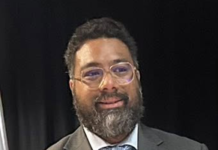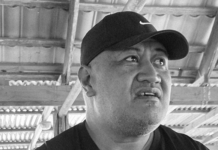Commentary—This week, Tonga’s lawmakers urged the Speaker of Parliament to consult the Attorney General (AG) on legal impasses, reviving a legal expert’s warning that failing to address these issues will continue to harm the nation’s democracy.

The latest stalemate, prompting calls for the AG’s advice, stems from a debate between the Opposition and the government over whether the law on revolving funds permits transferring money to the recurrent budget. This was a clear example of lawmakers regularly engaging in lengthy debates on legal issues—issues that could have been resolved in minutes if the AG had been present.
The absence of the nation’s top legal advisor in the legislative chamber not only highlights a structural deficiency but also underscores the troubling lack of legal expertise among many lawmakers.
The root of this issue traces back to Tonga’s contentious 2010 constitutional reforms, which removed the AG from government and placed them in the Privy Council.
This decision has long been debated, as it effectively silos legal counsel away from the very institution that needs it most.
The consequences are palpable: Time and again, we’ve witnessed the Legislative Assembly deadlocked, urgently demanding advice from the Attorney General, particularly during critical debates like Votes of No Confidence or annual budget deliberations.
Embedding the AG within Parliament would provide real-time clarity, ensuring decisions are grounded rather than political manoeuvring.
This isn’t just about procedural reform—it’s about restoring competence to Tonga’s democracy.
If the AG’s role is to advise the government, then they should be alongside those crafting the laws. Anything less is a disservice to the nation.
While Samoa and New Zealand seat their Attorney General in Parliament, and Fiji restricts theirs to Cabinet, Tonga persists with an indefensible paradox: a Parliament that routinely demands AG guidance during critical debates, yet systematically excludes its chief legal advisor from the legislative chamber.
Tonga can no longer ignore its broken political system, which the constitutional expert in the 2010 review condemned as the Commonwealth’s poorest constitution.
AG Post-Reform Critique
In his 2010 review of Tonga’s Constitution, Peter Pursglove critically examined the role of the Attorney General as stipulated by the new framework.
Hired by the nobility-backed government of Lord Tu’ivakanō—the first administration to test the post-reform democracy—Pursglove argued that placing the Attorney General within the “justice sector” alongside the Ministry of Justice and Lord Chancellor “is proving unworkable.”
“It is inefficient, ineffective, and unaffordable,” Pursglove stated, noting that maintaining separate administrative structures for the Lord Chancellor and Attorney General duplicated functions already adequately performed by the Ministry of Justice.
The report further warned that “the financial costs of the new judicial structure cannot be sustained from public funds” and that the reorganisation had eroded institutional accountability: while the Ministry of Justice answers to Parliament, the Lord Chancellor and Attorney General report only to the King in Privy Council. Pursglove concluded this structure “contradicts the democratic principles upon which the new Constitution was founded.”
Power Struggle Delays
Unfortunately, the Pursglove report was submitted to the King and tabled in Parliament for the next elected government to address—a decision timed just before the 2014 elections.
When Prime Minister ʻAkilisi Pōhiva’s government took office in 2015, it pursued the report’s recommendations, including six reform bills. However, lawmakers from the previous Tuʻivakanō administration—the very ones who had commissioned the Pursglove report—mounted fierce opposition.
They misleadingly claimed the reforms had been a conspiracy to strip the King’s powers.
In 2019, the Nobility finally conceded their earlier political manoeuvre in the House and urged ʻAkilisi Pōhiva to reintroduce the six bills for debate. However, Pōhiva’s death late that year halted progress.
His successor, Pohiva Tuʻiʻonetoa, shelved the bills indefinitely, prioritising policies he deemed more urgent for the people.







